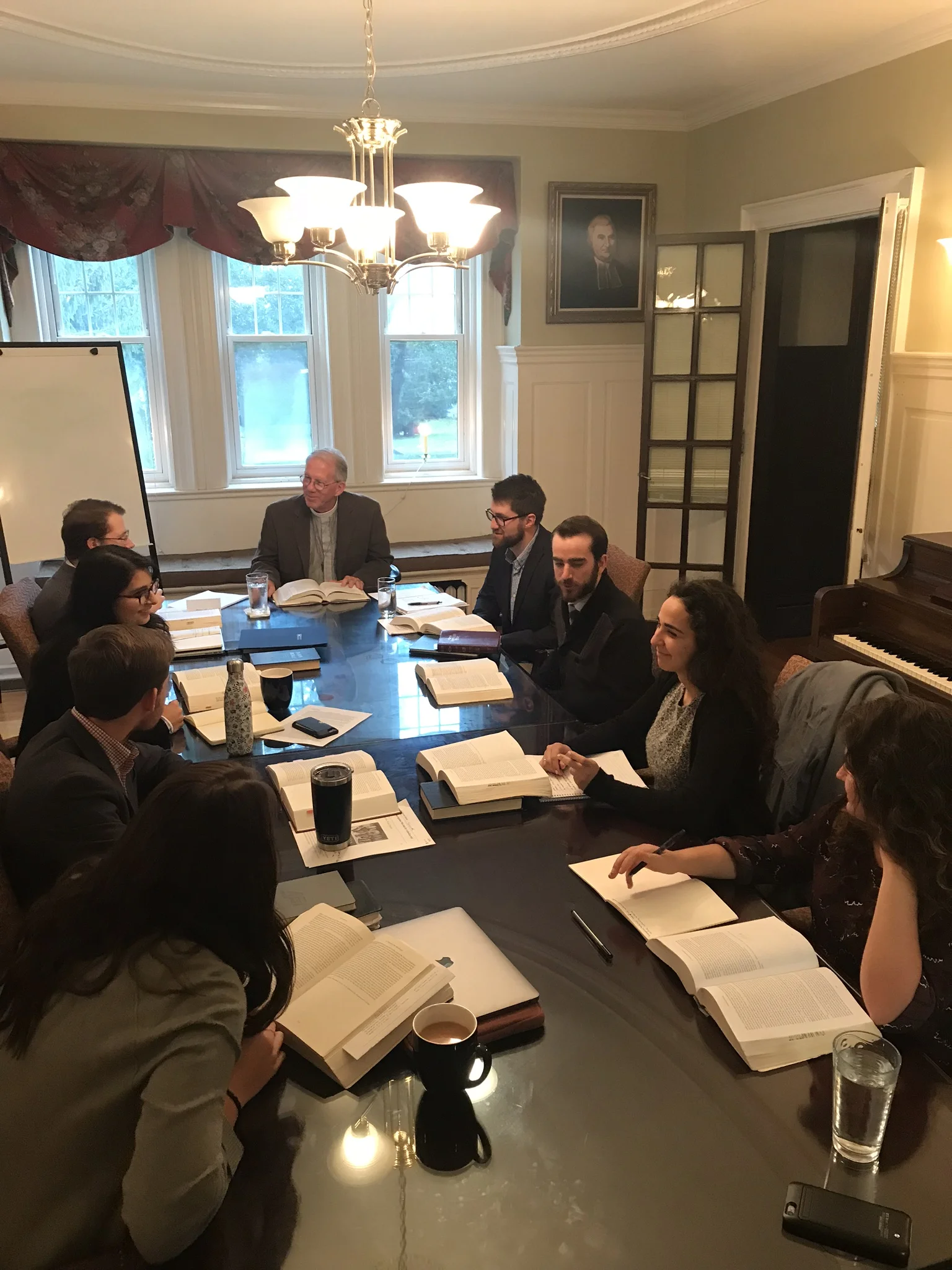We have asked our John Jay Fellows to assist us by writing reflections on each of the five courses covered during the John Jay Fellows program. Recently, we wrapped up our second module on Natural Law and Public Moral Discourse. The concept of the Natural Law has been a central component of western moral and political thought for over two millennia; from the classical Greek philosophers through Saint Thomas and up to the modern New Natural Law thinkers. Yet not all appeals to the Natural Law are equal, nor do they start from the same premises or arrive at the same conclusions. Our second module studies the development of the idea of Natural Law from the classical world up to contemporary scholarship that wrestles with this concept.
Fall 2018 John Jay alum, Timothy Russell, offers our first reflective essay on this module, the second in a series of five pieces in our Learning Together series.
Timothy Russell, Fall 2018 John Jay alum, plans to attend graduate school in Literature and Creative Writing, followed by a career in writing.
Natural Law & Public Moral Discourse
By Timothy Russell
Natural Law is a crucial topic of study at the John Jay Institute. Without Natural Law, society runs the risk of disintegrating and falling into chaos. This claim raises three important questions: 1) What is Natural Law? 2) How does it function? And 3) Why is it so significant?
1) What is Natural Law?
St. Thomas Aquinas, a 13th-Century Dominican scholar, writes in his “Treatise on Law” that there are four primary types of laws: Eternal, Divine, Natural, and Human. The Eternal Law is that which is inscribed into the very structure of the universe itself; all other forms of law originate from it. Divine Law consists of those commands given directly to humankind from God; these are specific elements of the Eternal Law that we would not know if God did not reveal them directly to us. Human Law comprises all laws made by human beings for the governing of society; unlike Divine Law, some human laws are good and just, while others are not. What makes a human law just or unjust?: Whether or not it is in accord with Eternal Law. But how do we know whether human laws accord with or contradict the Eternal Law? In some cases, we can tell by comparing them to the Divine Law. But this is not sufficient for all cases, as not every instance of right and wrong is directly addressed in Divine Revelation. Therefore, there must be another way that we can know the Eternal Law well enough to compare our human laws to it. That other way is called Natural Law.
2) How does Natural Law function?
Natural Law is that part of the Eternal Law that is, as St. Paul tells us, “written on the hearts” of human beings. It is the way we know that something is right or wrong without God telling us directly. In a sense, it is something that we already know or, as J. Budziszewski puts it, the Natural Law is “what we can’t not know.”
Of course, this does not mean that every person automatically knows what is right or wrong in every situation. Budziszewski goes into great detail concerning the various ways that the precepts of Natural Law can be overlooked, forgotten, buried, or misguided. That does not discredit the existence of the Natural Law. It remains a fact that there are certain fundamental rules about the universe that we can know without God revealing them to us directly.
3) Why is Natural Law significant?
This whole discussion may seem like so much heady intellectual jargon with no significance for real life, but nothing could be further from the truth. If we reject the concept of Natural Law, the world will quickly descend into chaos. The evidence is all around us, for we have rejected the idea of Natural Law, and the world has descended into chaos. It is nearly impossible to have a moral discussion with many people today, because they do not believe that there is such a thing as objective right and wrong. “What’s wrong for you might be right for me, or vice-versa,” they say. Why is this manner of thinking so prevalent today? Because, if we discard Natural Law, then Divine Law is the only way that we can tell right from wrong. Then what about those people who aren’t Christian? They have no way of telling right from wrong aside from their own thoughts and feelings, which often conflict with the thoughts and feelings of others. If there is no universal standard to measure against their thoughts and feelings, then morality becomes entirely subjective, entirely personal, and chaos ensues. That is exactly what has happened to our society. Until we can realize that some things are objectively good and objectively evil, then our descent into chaos will only intensify.


